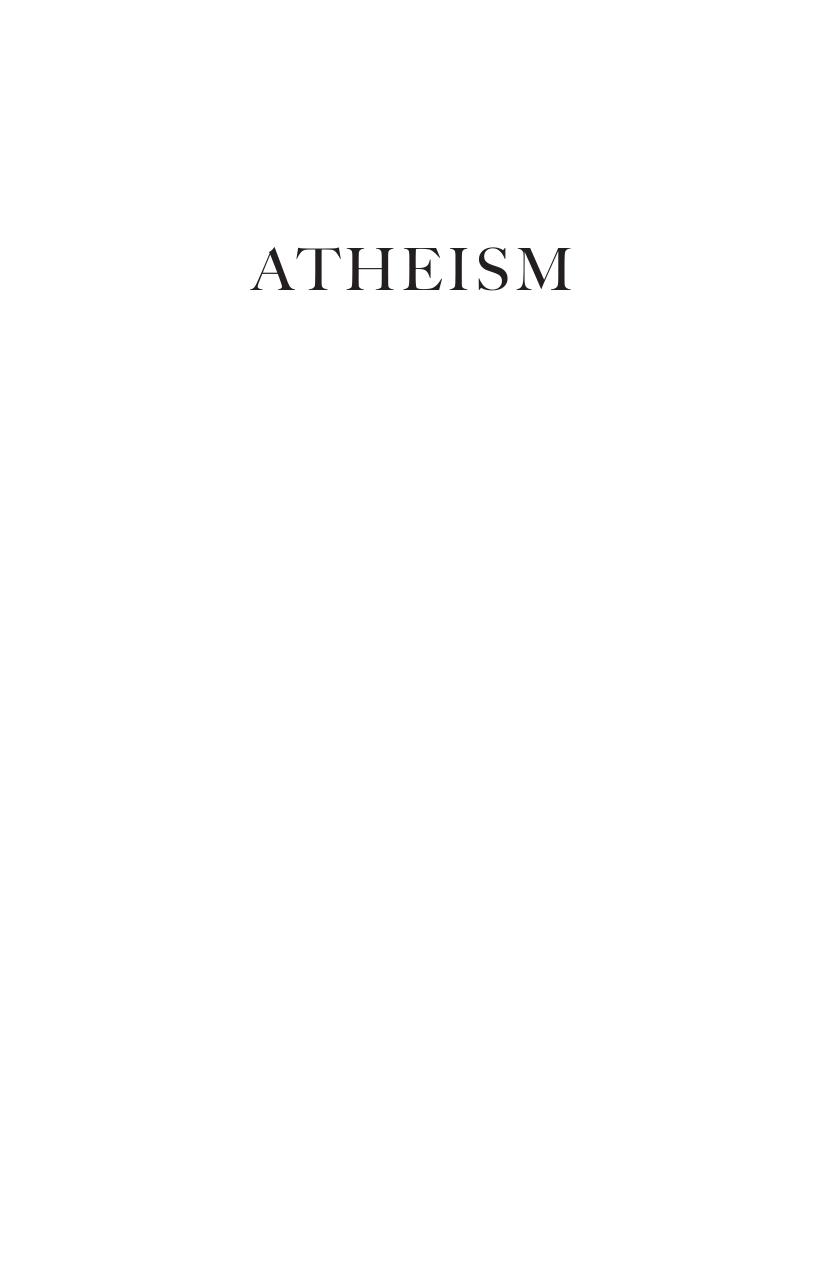Atheism by Alexandre Kojève

Author:Alexandre Kojève [Kojève, Alexandre]
Language: eng
Format: epub, pdf
Tags: Faith, Literary Criticism, Metaphysics, Movements, Non-Fiction, Phenomenology, Philosophy, Religion, Russia, Soviet Union
ISBN: 9780231542296
Google: DWNbDwAAQBAJ
Publisher: Columbia University Press
Published: 2018-11-06T00:00:00+00:00
14/X/31
Chapter I: 1231/3 pages I wrote from 2/VIII/31 to 14/X/31.
(sheet[s] 1–31) during 1451/2 hours consisting of 0,84 pages per hour.
NOTES
INTRODUCTION
1. Alexandre Kojève, Athéisme, trans. Nina Ivanoff (Paris: Gallimard, 1999); and Alexandre Kojève, Ateizm, ed. A. M. Rutkevich (Moscow: Praksis, 2007).
2. As to the text itself, see Dominique Pirotte, Alexandre Kojève: Un système anthropologique (Paris: Presses Universitaires de France, 2005), 31–53. As to atheism in Russia, see Victoria Frede, Doubt, Atheism, and the Nineteenth-Century Intelligentsia (Madison: University of Wisconsin Press, 2011).
3. Alexandre Kojève, “Tyranny and Wisdom” in On Tyranny, ed. Victor Gourevitch and Michael Roth (Chicago: University of Chicago Press, 2013).
4. Kojève’s abiding interest in the question of authority is especially evident in another work left unpublished until after his death, The Notion of Authority, which he wrote in 1942. See Alexandre Kojève, The Notion of Authority, trans. Hager Weslati (London: Verso, 2014).
5. Martin Heidegger, Being and Time, trans. John Macquarrie and Edward Robinson (New York: Harper & Row, 1962).
6. Kojève more flatly attacks the notion of Sein or Being so crucial to Heidegger. While Kojève does not directly associate Heidegger with negative theology, Kojève’s questioning of the rationality of the notion of an “is” freed from all predicates has implications for Heidegger’s notion of Being. That, indeed, there can be something like the “ontological difference” between Being and beings is a question for Kojève, who would dispute how any object can be both itself and radically other, like the stone of the fetishist. Stanley Rosen, an admirer of Kojève, takes a similar tack in his polemic against Heidegger, The Question of Being. See Stanley Rosen, The Question of Being: A Reversal of Heidegger (New Haven, Conn.: Yale University Press, 1993).
7. Martin Heidegger, “What Is Metaphysics?” in Basic Writings, ed. David Farrell Krell, 93–122 (New York: Harper Perennial, 2008). Heidegger presented this discourse on July 24, 1929, upon taking over the chair in philosophy at the University of Freiburg from his mentor and friend, Edmund Husserl.
8. Rudolf Carnap, “The Elimination of Metaphysics through Logical Analysis of Language,” in Logical Positivism, ed. A. J. Ayer, 60–81 (New York: Free Press, 1959).
9. Alexandre Kojève, L’idée du déterminisme dans la physique classique et dans la physique moderne, presented by Dominique Auffret (Paris: Librairie générale française, 1990).
10. The terminology Kojève uses alludes to Fichte’s distinction between the “I” (das Ich) and the “not-I” introduced in the Science of Knowledge of 1794.
11. I generalize here. Kojève’s examples are more complicated since he differentiates between two kinds of theist, one projecting a “something” that has no qualities, the other a “something” that has qualities not applicable to any being in the world (the “intensified” predicates, like omniscience, omnipotence, etc.). In either case, for the atheist this “something” is impossible and thus no-thing at all.
12. John Macquarrie and Edward Robinson translate this term by the notoriously problematic “state-of-mind,” whereas Joan Stambaugh, in her translation of Being and Time, uses “attunement,” which I have adopted here. See Martin Heidegger, Being and Time, trans. Joan Stambaugh (Albany: State University of New York Press, 2010), 130.
13. This is one of the interesting points in
Download
This site does not store any files on its server. We only index and link to content provided by other sites. Please contact the content providers to delete copyright contents if any and email us, we'll remove relevant links or contents immediately.
| African | Asian |
| Australian & Oceanian | Canadian |
| Caribbean & Latin American | European |
| Jewish | Middle Eastern |
| Russian | United States |
4 3 2 1: A Novel by Paul Auster(11052)
The handmaid's tale by Margaret Atwood(6856)
Giovanni's Room by James Baldwin(5879)
Big Magic: Creative Living Beyond Fear by Elizabeth Gilbert(4723)
Asking the Right Questions: A Guide to Critical Thinking by M. Neil Browne & Stuart M. Keeley(4576)
On Writing A Memoir of the Craft by Stephen King(4215)
Ego Is the Enemy by Ryan Holiday(3991)
Ken Follett - World without end by Ken Follett(3973)
The Body: A Guide for Occupants by Bill Bryson(3802)
Bluets by Maggie Nelson(3711)
Adulting by Kelly Williams Brown(3671)
Guilty Pleasures by Laurell K Hamilton(3587)
Eat That Frog! by Brian Tracy(3514)
White Noise - A Novel by Don DeLillo(3436)
The Poetry of Pablo Neruda by Pablo Neruda(3367)
Alive: The Story of the Andes Survivors by Piers Paul Read(3312)
The Bookshop by Penelope Fitzgerald(3229)
The Book of Joy by Dalai Lama(3218)
Fingerprints of the Gods by Graham Hancock(3214)
